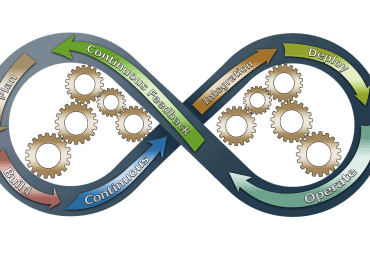Technology moves at breakneck speeds, and getting innovations to market quickly is crucial. DevOps consulting can help accelerate project timescales and improve a company’s agility and competitive edge.
There’s no dishonor in seeking out the assistance of a professional services vendor. It’s one of the best decisions a tech company can make to reach its short- and long-term goals.
Know Your Goals
Whether you’re a new tech startup or an established business, it’s important to clearly understand your goals before hiring DevOps consulting services. This will help you make the right choices to achieve your short- and long-term goals.
For example, suppose your company needs to release software updates more frequently to stay competitive in the digital realm. In that case, you can use DevOps practices to improve your deployment rate and increase productivity. You can also leverage Lean product management tools to track progress along the value stream, such as sprint burndown charts and Net Promoter Scores.
Devops consulting Boston helps reduce errors and speed up the deployment process by ensuring code is tested thoroughly. As a result, you can decrease the ‘Mean Time to Detection (MTTD) and the ‘Mean Time to Recovery (MTTR), which is the amount of time it takes for both testing and operations teams to report that a problem has been resolved. This is a vital metric to watch for, as it can indicate that you’re improving your efficiency and customer experiences.
Determine Your Needs
When choosing a DevOps consulting company, you must find one that meets your needs. Ideally, the consultant can bring pre-existing expertise into your project. This might include a complete audit of your current systems, infrastructure improvements (like modernizing software with containers or implementing Infrastructure as a Service), or deployment pipeline automation.
If the consultants are bringing in new solutions, you want them to be able to implement these and transfer them back to your engineering team gradually and gracefully. You should also expect the consultants to be able to identify bottlenecks and suggest appropriate fixes.
Many organizations use DevOps consulting services from companies for lower costs. These services are cheaper and more flexible than hiring a full-time employee. They also provide access to a team of experts who collaborate on projects, share knowledge, and support one another. These teams can overcome challenges faster and more efficiently than a single individual.
Find a Reliable Professional Services Vendor
Vendors can provide valuable expertise your team needs to have in-house. They can handle hardware and software deployments, help troubleshoot advanced problems, and keep your business running smoothly.
Ask for referrals from trusted people to find the right vendor for your needs. This will give you a good idea of how their work is performed and how reliable they are.
Once you’ve compiled a list of possible vendors, create an RFP document and send it to them. Ask them to provide comprehensive responses that address your key selection criteria and include their pricing structure, scalability options, and value proposition.
Review their qualifications, certifications, and training. Also, ask for references from past clients. Contact those references for unbiased feedback on the vendor’s reliability, communication skills, and professionalism. Also, look for a managed services provider that provides 24/7 support and ongoing maintenance. This will make it easier to budget for tech challenges that arise over time.
Communicate With Your Vendor
Maintaining communication is vital in DevOps consulting. A failure to communicate can result in a project delay and poor software delivery. Therefore, businesses should look for vendors with a strong track record of maintaining an open line of communication during project delivery.
In the competitive software development industry, releasing product updates quickly is essential for retaining customers. However, organizational silos and a slow deployment process can get in the way of rapid releases. DevOps can help eliminate these barriers by combining an extended Agile methodology with infrastructure modernization and automation of the deployment pipeline.
Choosing a vendor with extensive experience with DevOps practices and implementation is also important. While technical certifications are helpful, professional experience is more critical in ensuring the success of your business. An experienced vendor will have a better understanding of your goals and needs, as well as the tools that are most effective for your business.
